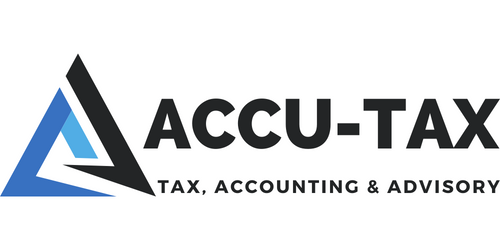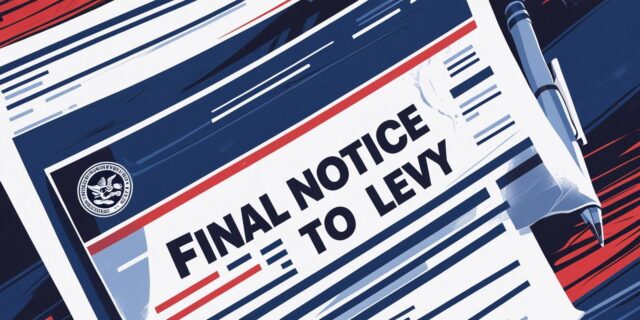LT11 vs. Letter 1058
If you’ve received a Final Notice of Intent to Levy from the IRS—either an LT11 or a Letter 1058—you’re facing a critical moment in the tax collection process. These notices are not routine reminders; they are formal warnings that the IRS is preparing to seize (levy) your property to collect unpaid taxes. Understanding what these notices mean, your rights under the law, and how to respond is essential to protect your assets and resolve your tax debt.
What Is a Final Notice of Intent to Levy?
Under Internal Revenue Code (IRC) Section 6330, the IRS must provide written notice to a taxpayer before levying (seizing) their property. This notice, known as the Final Notice of Intent to Levy, informs you that the IRS intends to take collection action—such as garnishing wages, levying bank accounts, or seizing other assets—if your tax debt is not resolved.
The notice also informs you of your right to request a Collection Due Process (CDP) hearing with the IRS Independent Office of Appeals within 30 days. This hearing is your opportunity to challenge the proposed levy, raise defenses, or propose alternatives such as an installment agreement or offer in compromise.
LT11 vs. Letter 1058: What’s the Difference?
Both LT11 and Letter 1058 serve as the IRS’s Final Notice of Intent to Levy, but they differ in how and by whom they are issued:
LT11: Automated Collection System (ACS)
- Issuer: The IRS Automated Collection System (ACS), a centralized, computerized system.
- Format: Standardized, computer-generated notice.
- Delivery: Sent by certified mail, return receipt requested, to your last known address. It may also be delivered in person or left at your home or business.
- Implication: Indicates your case is being handled by ACS, not a specific Revenue Officer. Communication is typically through the IRS’s toll-free numbers.
Letter 1058: Revenue Officer
- Issuer: An IRS Revenue Officer (RO), a field collection agent assigned to your case.
- Format: More formal, often includes the RO’s contact information and may be tailored to your situation.
- Delivery: Can be sent by certified mail, delivered in person, or left at your residence or business.
- Implication: Your case is being handled by a specific IRS employee, and you may be subject to more direct enforcement actions, including in-person visits.
Key Takeaway: Both notices have the same legal effect—they start the 30-day clock for you to request a CDP hearing. The main difference is whether your case is being handled by ACS (LT11) or a Revenue Officer (Letter 1058), which can affect the level of personal attention and the types of collection of actions you may face.
Legal Requirements Before Levy
Before the IRS can levy your property, it must:
- Assess the tax and send a Notice and Demand for Payment.
- You neglect or refuse to pay the tax.
- Send a Final Notice of Intent to Levy (LT11 or Letter 1058) and Notice of Your Right to a Hearing at least 30 days before the first levy. This notice must be sent by certified mail to your last known address, delivered in person, or left at your home or business.
Your Rights: The Collection Due Process (CDP) Hearing
Upon receiving an LT11 or Letter 1058, you have the right to request a CDP hearing within 30 days. This is a critical right that can stop the levy process while your case is reviewed.
How to Request a CDP Hearing
- File Form 12153, Request for a Collection Due Process or Equivalent Hearing.
- Deadline: The request must be postmarked or received by the IRS within 30 days of the date on the notice.
- Where to Send: The address or fax number is provided on the notice. If you send it to another IRS address listed on the notice (such as for payments), the IRS will generally honor the postmark date for timeliness.
What Happens at the Hearing?
At the CDP hearing, you can:
- Challenge the appropriateness of the collection action.
- Propose collection alternatives (installment agreement, offer in compromise, etc.).
- Raise spousal defenses or claim innocent spouse relief.
- In some cases, challenge the underlying tax liability if you did not previously have an opportunity to dispute it.
Note: If you miss the 30-day window, you may request an “equivalent hearing” within one year, but you will not have the right to petition the U.S. Tax Court if you disagree with the outcome.
Financial Disclosure Forms: Form 433-A and 433-B
If you want to propose a collection alternative (such as an installment agreement or offer in compromise), you will likely need to submit a financial disclosure form:
- Form 433-A: For individuals and self-employed persons.
- Form 433-B: For businesses.
These forms provide the IRS with detailed information about your income, expenses, assets, and liabilities, and are essential for evaluating your ability to pay.
Consequences of Ignoring the Notice
If you do not respond to the LT11 or Letter 1058 within 30 days:
- The IRS may proceed with levying your wages, bank accounts, Social Security benefits, or other property.
- You lose the right to a CDP hearing and the ability to challenge the levy in Tax Court.
- You may still request an equivalent hearing within one year, but this does not stop collection or allow for judicial review.
Practical Guidance: What Should You Do?
- Do Not Ignore the Notice: The 30-day window is critical. Failing to act can result in immediate and severe collection actions.
- Request a CDP Hearing Promptly: Use Form 12153 and keep proof of mailing or faxing.
- Gather Financial Information: If you want to propose a payment plan or settlement, complete Form 433-A or 433-B as soon as possible.
- Communicate with the IRS: If you are working with ACS (LT11), call the number on the notice. If you have a Revenue Officer (Letter 1058), contact them directly.
- Seek Professional Help: If your case is complex, involves significant tax debt, or you are unsure how to proceed, consult a qualified tax professional or attorney. They can help you navigate the process, protect your rights, and negotiate with the IRS.
Special Note: If You Miss the 30-Day Deadline
Recent legal developments (including the Organic Cannabis Foundation, LLC v. Commissioner case) have clarified that, in rare circumstances, the 30-day deadline for requesting a CDP hearing may be subject to “equitable tolling” if you can show extraordinary circumstances prevented timely filing. However, this is a complex legal argument and should be pursued with professional assistance.
Bottom Line: Receiving an LT11 or Letter 1058 is a serious matter. Act quickly, know your rights, and seek help if needed. The IRS has strict procedures, but you have important protections—use them to your advantage.


